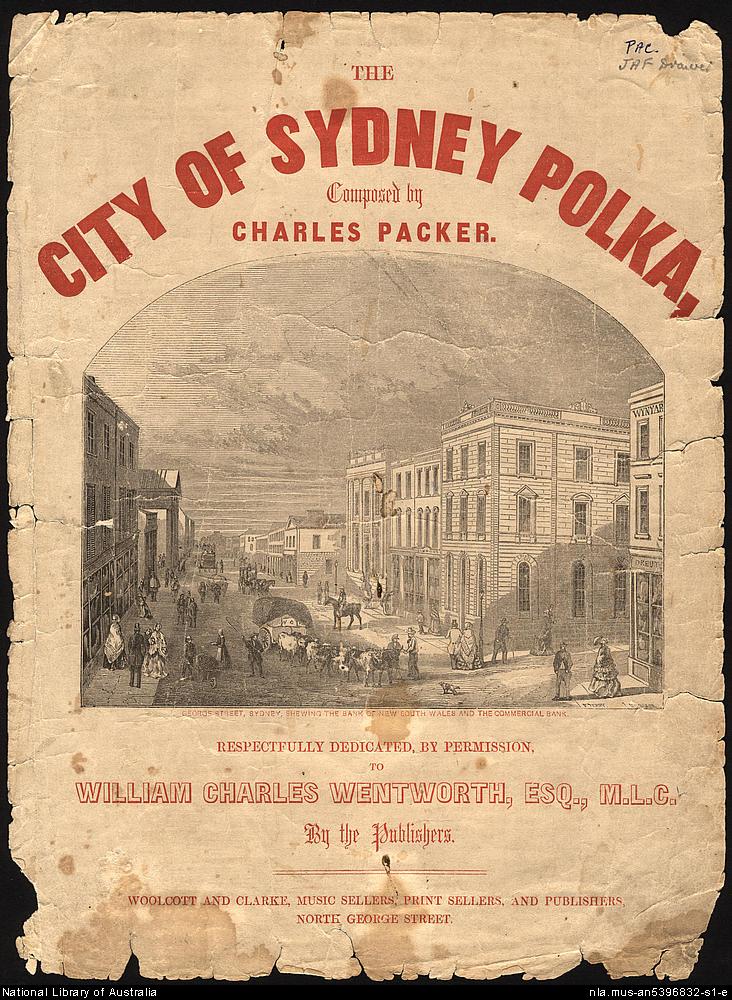The Dictionary of Sydney was archived in 2021.
The City of Sydney Polka 1854

Contributed By
(Published: Sydney : Woolcott and Clarke, [1854?])

